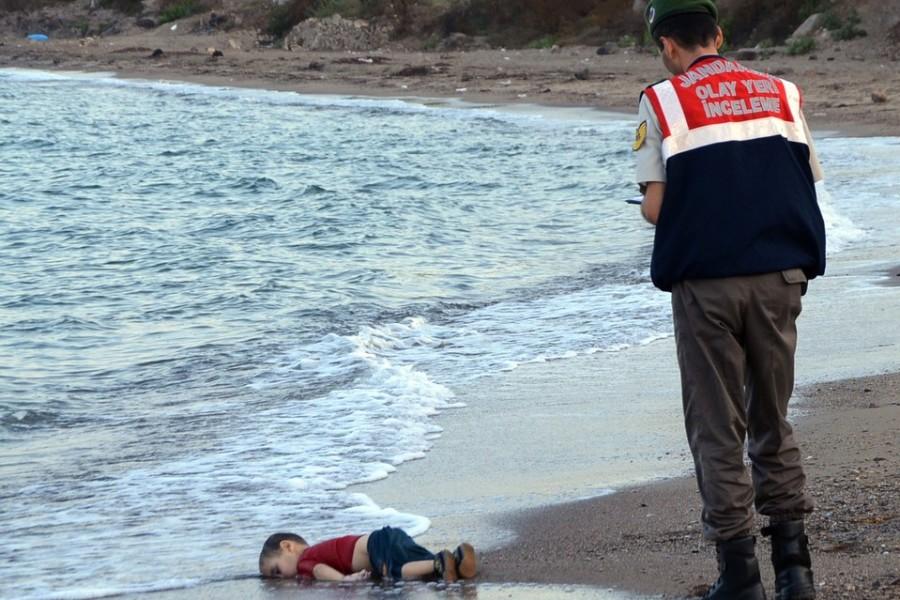A boy without a country (Opinion)
Understanding the Syrian Refugee Crisis
October 15, 2015
It was the picture that shook the world. As thousands of refugees died this year trying to get to Europe, one Syrian boy’s body washed up on the shores of Turkey. There he was, his small body clad in a blue shirt and red pants, lying face down in the sand. The world looked on, as the waves lapped at his lifeless face and stripped him of his childhood. His name was Aylan Kurdi. He was only three years old.
There’s a comfort in numbers. They’re cold, distant, and don’t feel like people. Numbers don’t have beating hearts. They don’t have jobs, families, hopes, or dreams. They’re just lines on a page. Which is why, until that earth-shattering picture, most people didn’t know that since the outset of the Syrian Civil War in 2011 and the growth of ISIS, there have been 250,000 Aylan Kurdis.
That’s 250,000 lives lost at the hands of a corrupt government and a ruthless terror group. This devastating combination has led to more than four million Syrians fleeing their homes in the wake of murder, torture, and systematic oppression. Those four million people include teenagers just like us – forced to give up their education, home, and family in exchange for the chance of survival.
These refugees have sought political asylum in neighboring countries including Jordan, Lebanon, Iraq, Turkey, and Egypt – which house 95% of Syrian refugees. But as these countries become stretched thin on resources, the refugees begin to turn to other countries for help, paying smugglers thousands of dollars to get them there. Smugglers are the only ones benefitting – the refugees’ silent screams fall on deaf ears.
Refugees, to quote the UN Human Rights Committee, are “persons fleeing armed conflict or persecution. These are people for whom the the denial of asylum has potentially deadly consequences.” Contrary to the opinion of European countries who refuse to grant them refugee status, these refugees are not choosing to leave Syria because it’s a little crowded, or because they want a change. They are not migrants hoping to make a little more money in a developed country.
You don’t risk your life and the life of your children, paying thousands of dollars to share a plastic boat filled to overcapacity, smuggled in turbulent waters and unsafe conditions – unless you have no other choice.
These refugees have good educations and labor skills. They could enrich their countries – if only they were given the opportunity. We have the resources to give teenage refugees their life back. They can go back to school, live in a home instead of a tent, and regain the childhood they were forced to give up. These teenagers could go on to become our valedictorians, our CEOs, our world leaders.
At this point, the number of refugees taken in by countries like the US, Australia, and Canada is nothing short of shameful. Together, they take in less than 5% of Syrian refugees.
Until legal opportunities for refugees to seek asylum in developed countries are made available, like quota systems, the smuggling and deaths will continue. It may not be “our” problem, but we are one species, sharing the same world, and all humans are our people.
Nelufur Demir, the photographer who captured Aylan’s powerful image said, “There was nothing left to do for him. There was nothing left to bring him back to life.” We can’t bring back those lives lost – but we can help – by donating to NGOs like Feed the Children that provide food and shelter to refugees, and more importantly by widening the definitions of what our cultures look like to accommodate new arrivals.
Until the war ends, we have a moral and legal obligation to help little boys like Aylan Kurdi and provide economic support to the developing countries that shoulder 95% of the Syrian refugee burden. We are not numbers on a page; we are humans. With beating hearts and sweaty palms and hopes and fears. It’s time for us hear the scream of Aylan’s silent body. There is only one way forward for our species: together.

